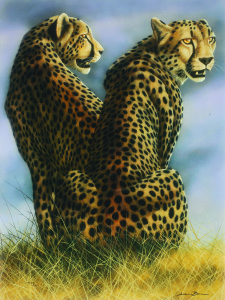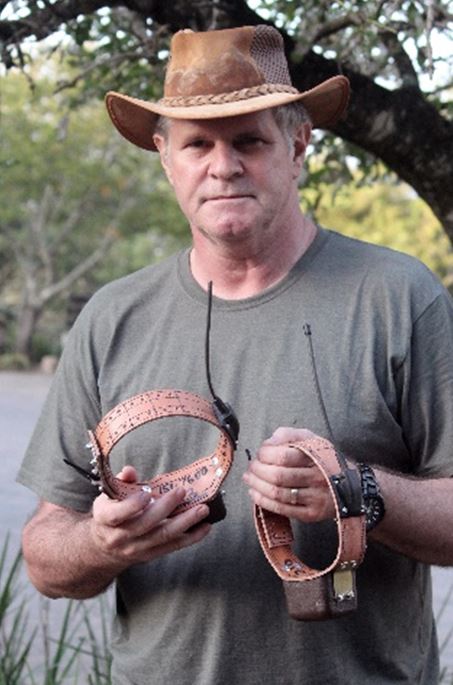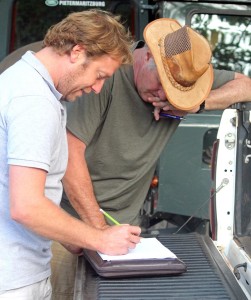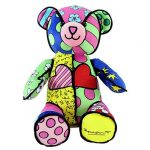Andrew Bone begins cheetah tracking project
Wildlife artist and conservationist Andrew Bone has reported that a donation from the Park West Foundation will help make strides in protecting the cheetah population in Africa.
A recent donation of $15,000 to Bone’s non-profit Forever Wild Foundation from Park West has set in motion a project with the Wildlife ACT Fund that will monitor and track cheetahs in order to better understand and support the dwindling population in Africa.
Bone, a native of South Africa, says the cheetah population is so threatened that there are more rhinos in Africa than cheetahs. Specifically, there are an estimated 25,000 rhinos in Africa as of 2013, but only 7,500 adult cheetahs remain in the wild, according to the Wildlife ACT Fund.

“A Family Affair” (2012) by Andrew Bone.
Bone says the population has endured losses not only to hunting, but due to habitat loss and diseases that affect canine species.
“Cheetah are a lot closer to the dog family than to the cat family,” he says. “Canine distemper virus virtually wiped the cheetah off the face of the earth, and what was left was small pockets of cheetah, which have become more and more inbred as we have put them into areas.”
According to Bone, the Hluhluwe-iMfolozi Park in Natal has one of the most stable cheetah populations in South Africa, but no scientific research has been carried out since they were introduced decades ago.
“We have absolutely no idea what the conditions are, where they are, what their reproduction is at the moment,” he says.
To support efforts to study and track this population, the Park West Foundation donated $15,000 to Bone’s Forever Wild Foundation to support the Wildlife ACT Fund’s cheetah project. Bone says as of March 3, his foundation acquired and delivered radio collars and mobile repeaters for monitoring two cheetahs thanks to the donation.
“Every two hours a signal is sent out, and the signal from the collar will tell you whether it’s at rest, if it’s walking, if it’s been eating,” he says.
In addition, three cheetahs will be imported from another area and collared to bolster the gene pool of the cheetah population. In a letter to Park West Gallery, Bone wrote the following:
“The Foundation has committed itself to covering the additional costs of veterinary equipment and expertise for the project. It is rewarding to personally know and respect those other individuals involved in the project.”
Bone says not only will the monitoring project help support the population, but could potentially provide new insight and information on the rare and elusive creatures.
“There are so many benefits, but what it takes is money, manpower, veterinary knowledge and the follow up,” he says.
The success of collaring animals

“Savannah Siblings” (2012), Andrew Bone. From “The Cheetah” Suite.
In his letter, Bone also details the latest developments of his foundation’s wild dog re-introduction program that show the importance of collaring and monitoring animals. Around two years ago, a pack of 13 wild dogs were placed in Mkuzi Park. Since that time, Bone said the pack has split, which occurs when there are too many females in one pack, and there are now 22 wild dogs.
Said Bone in his letter:
“Due entirely to the monitoring collars (also supplied by the Foundation) some individuals within the pack were saved after being snared, having their horrendous neck wounds treated by the park’s vets. Without the warning from the collar’s transmitter, the animals would certainly have been lost.”
The Forever Wild Foundation, conceived in 2014, uses donations to provide in-kind resources to causes that support the conservation of African wildlife.







